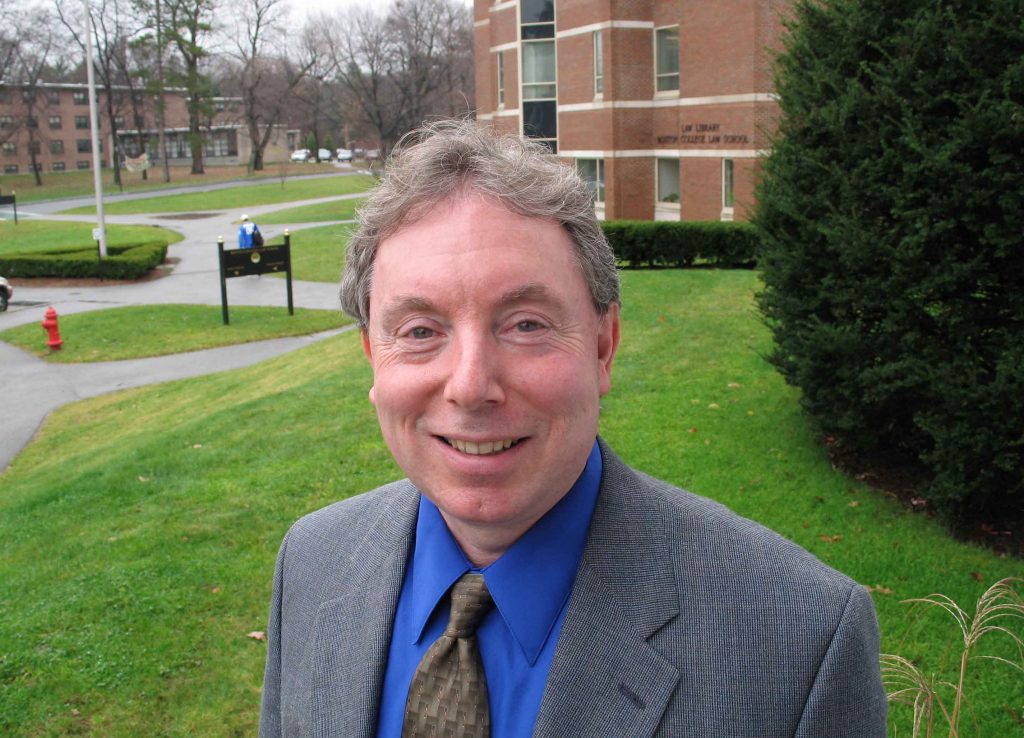Boston College’s Post-Deportation Human Rights Project (PDHRP)—and its team of BC Law faculty, students, alumni, and legal colleagues—has secured a rare and important victory by winning the right of a lawful permanent resident to return to the US after being wrongfully deported.
“We have been vigorously fighting this kind of injustice for many years now, through an array of complex Motions to Re-open in Immigration Court and the Board of Immigration Appeals, baroque appeals to the Fifth Circuit, and a million issues of equitable tolling, detention, jurisdiction, venue, timing, and lack of clear return policies,” said Professor Daniel Kanstroom (above), founder of the PDHRP and author of Aftermath: Deportation Law and the New American Diaspora, and Deportation Nation: Outsiders in American History.
The client had been a lawful permanent resident since 1993, after arriving as a young child in the US. He was deported in 2005 to Honduras as an “aggravated felon” due to a single conviction for possession of ecstasy (for which he had received no jail time and for which he had received a pardon in Louisiana). During his immigration detention he was moved to five detention centers in as many months and his immigration paperwork was destroyed by Hurricane Katrina. The client’s immigration lawyer had waived appeal.
“In Honduras, after our client heard about the Supreme Court’s 2006 Lopez v. Gonzales decision (which had held that the government was wrong to consider cases such as his to be aggravated felonies), he began to think that perhaps an injustice had been done in his case,” Kanstroom said. “He was right. But as we all know, it is often a very long way from there to here.”
In March 2018, the client was finally permitted by the Department of Homeland Security to return to the US (albeit in detention in Louisiana). He was soon thereafter able to have the hearing to which he was entitled, and on May 7, with his family on site, the immigration judge granted “Cancellation of Removal” and the government waived appeal, Kanstroom said. “Our client is now restored to his rightful LPR status in the United States.”
“The case illustrates that post-deportation victories are indeed possible,” Kanstroom continued, “though it took a prodigious amount of very complicated legal work to overcome a vast array of obstacles.” As the client put it in a letter, “I will finally be able to fulfill my dreams in this beautiful country, I am beyond extremely grateful with you all, you just saved my life and family.”
Kanstroom was joined in this effort by PDHRP lawyers Jessica Chicco, Aimee Mayer-Salins, and Heather Friedman and the substantial pro-bono assistance of Nixon Peabody LLP, especially Ronaldo Rauseo-Riscupero ’07, Danielle McLaughlin, and Brianna Nassif ’17. Other collaborators were law clinics at Loyola University New Orleans College of Law, the University of Houston Law Center, Louisiana local counsel, Stone Pigman Walther Wittmann LLC, and experts from Millersville University and Wellesley College.
The Post-Deportation Human Rights Project, based at the Center for Human Rights and International Justice at Boston College, was founded to address the harsh effects of US deportation policies. The project aims to conceptualize a new area of law while promoting the rights of deportees and their family members through research, policy analysis, human rights advocacy, and training programs. The ultimate aim of the project is to advocate, in collaboration with affected families and communities, for fundamental changes that will introduce proportionality, compassion, and respect for family unity into US immigration laws and bring these laws into compliance with international human rights standards.


